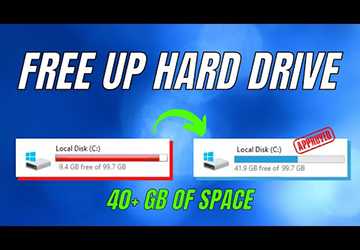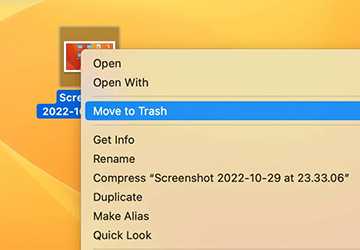7 Ways to Free Up Space on Your Overloaded Computer
When your hard drive reaches capacity, everything stops. When crawling, startup times may be faster, applications take longer, and even simple tasks like searching for files can be significantly delayed.
As you store and download more data, your computer has to work overtime. The ongoing space battle will only get more intense as time passes.

Even an entire hard drive increases the risk of data loss. Without open slots, storing new information means overwriting existing files. One wrong step can ruin something important.
We've all been there: your computer's hard drive is almost complete, everything slows down, and you can't install new programs. Digital clutter accumulates over time, and before you know it, your computer is full.
This article explains seven effective ways to clean up and free up valuable hard drive space. With just a little effort, your machine can be running like new again.
Let's dive in!
Seven practical ways to free up storage space
The effects of the long-term disorder are beginning to show. However, recovering disk space can significantly improve the situation. Check out seven effective decluttering strategies to breathe new life into your overloaded computer.
1. Delete unused apps and programs
Over the years, it's easy to accumulate software that you no longer need. Uninstalling programs and applications you don't use will instantly free up storage space.
First, check your list of installed apps and delete any apps you last opened more than a year ago. To decide whether to remove a specific program, monitor usage for a month. Remove applications that won't start.
Next, check for old software installers and packages taking up hard drive space. If the program is installed, they can safely move to the Trash.
2. Remove duplicate files
Duplicates may seem manageable, but they can quickly consume disk space over time. Find and delete extra copies of photos, documents, videos, and music.
First, organize your files into folders to keep similar items together. Then, use your operating system's search capabilities to identify duplicates. For more options, you can also use a dedicated duplicate file finder.
View copies and keep only the content you need. One main file instead of 20 unused additional files will free up a lot of disk space.
3. Clean your downloads folder
The Downloads folder is one of the biggest culprits - installers, zip files, and who knows what else are thrown in here without a second thought.
Open your downloads folder and delete the following contents:
● Installer for installed software
● Unzipped Zip file
● Any other files you no longer need
Then, make a habit of sorting and deleting unnecessary downloads regularly. Some ongoing maintenance can prevent a flood of outdated files.
4. Clear system junk files
Junk files like temporary internet cache, broken shortcuts, and error logs accumulate in the background and occupy disk space. To remove them, use Windows' Disk Cleanup utility or a third-party cleaning application.
Disk Cleanup finds junk hidden everywhere on your system, from your browser history to the Trash. Select the file type you want to delete, and free up all storage space with one click.
Schedule Disk Cleanup to run automatically every month to remove excess junk. Keep your system slim and clean to maximize available space.
5. Clear browser cache
Web browser cache allows quick access to frequently visited websites. But over time, they can become crowded with unnecessary temporary files.
Clear your cache and browsing history in Chrome, Firefox, or any other browser. You can usually find this under Settings > Privacy. To free up storage space, set your browser to automatically delete cache and history regularly.
Freeing up your browser cache can increase speed and eliminate gigabytes of pointless clutter.
6. Remove unused media
When did you last see a random video or MP3 from 2003? Media files such as photos, videos, music, and podcasts take up a lot of storage space. Be ruthless and delete anything you haven't used in years.

Here are some tips:
Delete screenshots no longer needed
Delete blurry, dark, or low-quality photos and videos
Delete music you no longer listen to
Delete movies and videos you've watched but no longer want to play
Regularly pruning unused media prevents them from hogging your storage. Keep only your favourite and most important files.
7. Back up and delete unnecessary content
Documents, projects, and personal archives accumulate without us even realizing it. We save our work but often forget to delete content we no longer need.
Search all non-media files, such as documents and archives. Ensure all critical data is backed up in the cloud or an external drive. Then delete drafts, temporary files, and anything unimportant you kept "just in case."
Develop an organizational system and routine maintenance plan to avoid creating new chaos immediately. Be careful about storage hygiene, and you'll be overcrowded again soon.
Keep your computer tidy
Randomly overloading your computer can cause headaches and waste time. However, managing your storage will keep your machines running smoothly for years.
Use these organizing strategies to reclaim space and improve your performance. Then, make them a habit.
Set a calendar reminder to reevaluate your storage needs each month. Complete cleaning tasks before your computer returns to its naturally cluttered state.
A lean, clean computer is a happy computer. You'll thank yourself for the review!